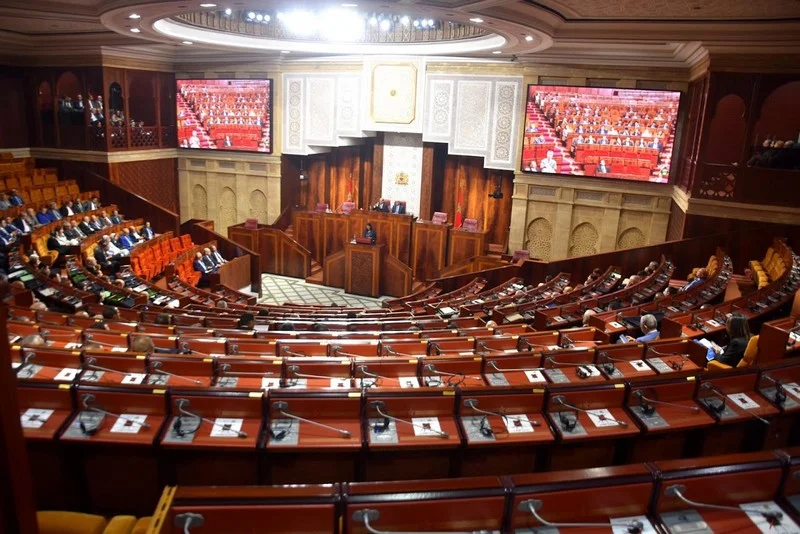
Political Participation of Moroccans Abroad: A Persistent Challenge
The political participation of Moroccans living abroad has consistently resurfaced during each election cycle in Morocco. Despite the adoption of the 2011 Constitution, which aimed to modernize and expand democratic processes, the issue remains a point of contention. While there are promises from political parties to support the inclusion of these citizens, legislative reforms on this matter have repeatedly been delayed or rejected.
In August, the Interior Minister, Abdelouafi Laftit, initiated consultations with political parties ahead of the 2026 legislative elections. These discussions were prompted by royal directives outlined in the Throne Speech on July 29. King Mohammed VI emphasized the importance of holding elections on their constitutional date and adopting a specific Electoral Code for the House of Representatives before the end of the year. However, among the parties represented in Parliament, the issue of political participation for Moroccans living abroad rarely becomes a priority.
Laftit reminded the House of Councillors that Moroccans abroad enjoy the same rights as those residing in the country. He reiterated that the current electoral system allows MREs to register on general electoral rolls, vote, and run for office in national elections. Additionally, he highlighted that legislators had expanded registration possibilities, including direct voting in Moroccan polling stations or voting by proxy from their country of residence.
To increase MRE representation in the House of Representatives in 2021, political parties were required to place a candidate residing abroad at the top of at least one regional list or risk losing public funding. The minister reiterated that the government remains open to any constructive proposal aimed at strengthening the electoral participation of MRE, provided it aligns with the constitutional framework.
Despite these efforts, civil society members abroad argue that the issue remains unresolved. Salem Fkire, founding president of the Cap Sud MRE association, stated that the project has stalled despite repeated appeals to political parties. Following the 2011 Constitution, the NGO signed agreements with four major parties, but a bill tabled by Istiqlal for the direct political participation of MREs was rejected in Parliament in March 2021.
Unanswered Proposals and Stalled Progress
Cap Sud MRE’s main proposal, agreed upon with signatory parties, sought to implement Articles 16, 17, 18, and 163 of the Constitution. It called for creating a dedicated MRE college within the House of Councillors or establishing a new constituency represented across five continents, with seats proportional to the number of MREs in each region. Neither option has been implemented or placed on the public debate agenda since the 2021 elections.
Fkire expressed frustration, stating that it would be a shame if the issue of electoral participation became a bargaining chip in political negotiations. He emphasized that maintaining ties between the third and fourth generations of Moroccans and the mother nation is essential.
According to Fkire, the question today is whether political parties and the government will allow the creation of constituencies abroad, similar to how Senegal, France, and Italy do for their citizens. He argued that representativeness of constituencies for Moroccans abroad is a legislative and political mechanism best suited to addressing their issues.
Calls for Political Will and Representation
Frustration is also growing among those who have participated in politics in their countries of residence but remain excluded in Morocco. Mohamed Chaïb Akhdim, former socialist deputy in the Catalan Parliament and the Spanish Congress, now president of the Ibn Battuta Foundation in Barcelona, stressed the need for the government to address the issue of political participation of MREs.
Chaïb questioned what has been done with documents produced on MRE participation in elections and their access to institutions. He emphasized the need to align with the King’s directives and expressed incomprehension about the idea that Morocco is not yet ready for the participation of its citizens abroad.
He proposed that holding elections through consulates, as other countries do in consular constituencies, could better represent the issues facing Moroccans abroad. This, he argued, would ensure that many of the issues facing Moroccans abroad are addressed effectively.
From Constitutional Principle to Legal Action
University professor and migration researcher Abdelkrim Belguendouz argued that since the 2011 Constitution, the political participation of MREs through electoral representation remains entirely open. He noted that the constitutional principle lays foundations whose details must be defined in organic laws and framework laws, which have yet to address the subject.
Belguendouz pointed out that voting by proxy has proven its limits in effectively including MREs in electoral processes. Reports from the National Human Rights Council show that recourse to this option remains extremely minimal.
He welcomed the start of consultations with political parties for election preparations, stressing that the arguments of anti-participation advocates, citing time constraints, logistical hurdles, and human resources, to postpone the MRE question are no longer acceptable. The ball is now in the political parties’ court.
